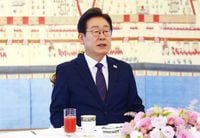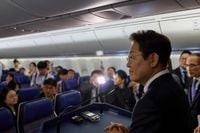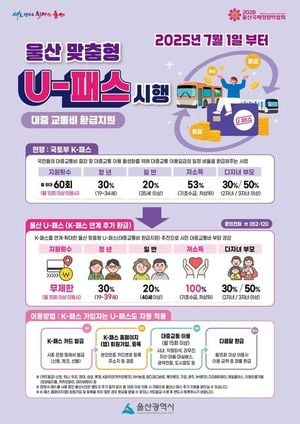President Lee Jae-myung has decided not to attend the upcoming NATO summit scheduled for June 24-25, 2025, in The Hague, Netherlands. This marks a historic first, as South Korea’s president has never before declined an invitation to the annual summit, which has included South Korea since 2022 as one of the four Indo-Pacific partner countries (IP4), alongside Japan, Australia, and New Zealand. The decision, announced on June 22, 2025, by the Presidential Office, was heavily influenced by the escalating military conflict in the Middle East, particularly the recent U.S. strikes on Iranian nuclear facilities and the resulting heightened regional instability.
President Lee’s absence comes amid a complex backdrop of domestic and international challenges. Since his inauguration, Lee has been deeply engaged with pressing national issues, including cabinet appointments and the deliberation of a supplementary budget bill. Despite these internal pressures, the President had given serious consideration to attending the NATO summit, reflecting a strategic desire to solidify South Korea’s diplomatic ties, especially with key allies such as the United States and Japan.
National Security Advisor Wi Seong-rak explained in a written briefing on June 22 that the government had actively reviewed the possibility of President Lee’s attendance despite the numerous domestic challenges. However, after assessing the combined impact of internal affairs and the volatile Middle East situation, the President concluded that direct participation was not feasible at this time. Wi added that the matter of sending other government officials to represent South Korea at the summit remains open and will be discussed with NATO authorities.
The Middle East crisis escalated sharply after the U.S. military attacked three nuclear sites within Iran, prompting Iran to signal possible retaliatory actions. This sudden surge in tension has not only unsettled the region but also raised concerns about potential spillover effects in Northeast Asia, where security dynamics are already delicate. The Presidential Office’s decision reflects caution against further complicating South Korea’s security environment amid these uncertainties.
President Lee’s foreign policy approach has emphasized pragmatic diplomacy, balancing strong alliances with the United States and Japan while avoiding antagonism toward China and Russia. This approach aligns with South Korea’s role as an IP4 partner invited annually to NATO summits since 2022. The invitation itself underscores NATO’s recognition of the interconnectedness of security challenges across Europe and the Indo-Pacific, particularly in light of the Russia-Ukraine war and increasing military cooperation between North Korea and Russia.
Lee’s attendance at the recent G7 summit in Canada on June 16, 2025, had been a significant step in reasserting South Korea’s position on the global stage. However, the anticipated meeting with U.S. President Donald Trump did not materialize, as Trump returned early due to the worsening Middle East situation. The NATO summit was viewed as a crucial opportunity to reschedule the Korea-U.S. summit and reinforce ties within the democratic camp. This potential meeting was a key factor in the initial momentum behind Lee’s planned attendance.
Yet, with Trump’s own attendance at the NATO summit becoming uncertain amid the Middle East tensions, the Presidential Office reassessed the benefits of Lee’s participation. A senior Presidential official told reporters on June 12 that attendance was not yet confirmed but was a strong possibility, reflecting the administration’s initial optimism. By June 22, however, the rapid deterioration of international security and economic conditions, including concerns about rising oil prices and economic volatility, shifted the calculus decisively.
During a luncheon on June 22 with ruling and opposition party leaders at the Presidential Residence in Hannam-dong, President Lee openly expressed his uncertainty about attending the NATO summit, stating, "The issue of attending the NATO meeting is not yet confirmed, and I want to hear your opinions." This candid admission highlighted the complexity of the decision and the weight of domestic political considerations.
Following the luncheon, Lee convened a closed-door meeting with his Presidential Secretariat and security officials to deliberate further on the matter. Discussions reportedly focused on the practical gains of attending the summit weighed against the risks posed by the unstable Middle East situation and the potential delays in critical domestic affairs, such as cabinet appointments. The conclusion was clear: the President’s presence at the NATO summit was not advisable under the current circumstances.
The decision has sparked concerns among analysts about how South Korea’s foreign policy direction might be perceived by Western allies. Doo Jin-ho, head of the Russia Research Center at the Korea Institute for National Unification, emphasized the importance of maintaining clear communication with NATO, suggesting that the government should dispatch a special envoy to explain Lee’s absence and prevent any misinterpretation within the democratic alliance.
South Korea’s invitation to NATO summits since 2022 highlights the evolving nature of global security cooperation, with the alliance extending its reach to include key Indo-Pacific partners. This collaborative framework aims to address multifaceted challenges, from Russian aggression in Ukraine to North Korean military activities and their growing ties with Russia. North Korea and Russia have criticized these summits and South Korea’s involvement, underscoring the geopolitical sensitivities at play.
The President’s decision also reflects broader strategic considerations, including the urgency of upcoming tariff negotiations with the United States set for July 8, 2025. With economic recovery efforts underway, the administration is cautious about diverting attention and resources away from domestic priorities. The uncertainty surrounding a Korea-U.S. summit with President Trump further diminishes the potential diplomatic payoff of attending the NATO meeting.
As the NATO summit convenes with 32 member countries in The Hague, the spotlight will also be on the other IP4 leaders from Japan, Australia, and New Zealand, whose decisions on attendance remain pending. Their participation will continue to shape the contours of security cooperation between Europe and the Indo-Pacific region.
In a world where diplomatic engagements are increasingly complex and fraught with rapid geopolitical shifts, President Lee’s choice to prioritize domestic stability and cautious foreign policy signals a nuanced approach to leadership. It underscores the delicate balancing act South Korea must perform amid global tensions, striving to maintain alliances while navigating unpredictable international crises.





